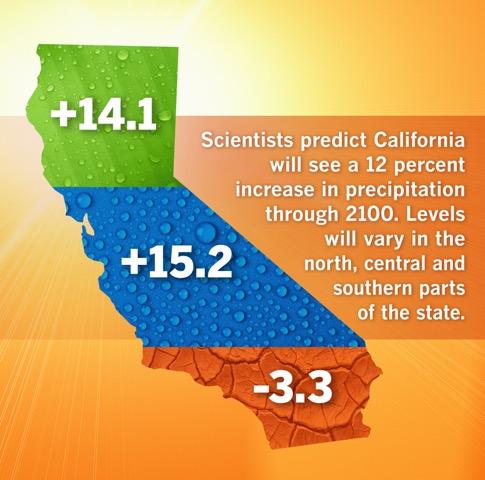California could get wetter and not drier due to climate change
California has been battling a decrease in precipitation over the last decade but new research into climate change says that things are about to get wetter and not drier for the state of the entertainment industry.
California’s dry spell could be cut short by climate change. While most predictions show a decrease in precipitations in the state, a new research coming from Riverside states the opposite. UC Riverside researchers analyse 38 climate models and project California will get on average 12 percent more precipitation through 2100.
And according to the scientists, Central California will see the highest rise in rains. Northern California, which they define as starting just north of Santa Rosa, would increase 14.1 percent. Central California, which starts just south of San Luis Opispo, would go up 15.2 percent. Only in Southern California, precipitations are expected to decrease by 3.3 percent.
Looking at their data, the researchers also concluded that most of the precipitation will fall during the winter months. Even today, California gets the bulk of its precipitations during December, January and February. During those three months, precipitation levels would increase 31.6 percent in Northern California, 39.2 percent in Central California and 10.6 percent in southern California, the scientists say.
Even the scientists working on the study were surprised by their results.

“Most previous research emphasised uncertainty with regards to future precipitation levels in California, but the overall thought was California would become drier with continued climate change,” said Robert Allen, an associate professor at UC Riverside and one of the authors of the paper. “We found the opposite, which is quite surprising.”
According to the model, the rise in temperature will bring more rain-producing cyclones towards California.
“Essentially, this mechanism is similar to what we in California expect during an El Nino year,” Allen said. “Ultimately, what I am arguing is El Nino-like years are going to become more the norm in California.”
But the professor also has a warning saying that El Nino-like years are not a guarantee and that many factors should be taken into account when talking about how climate change will affect weather patterns.